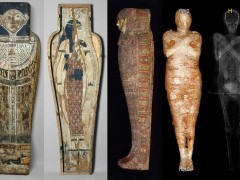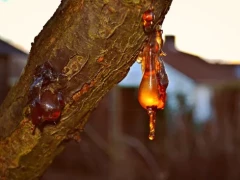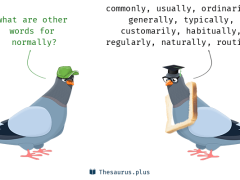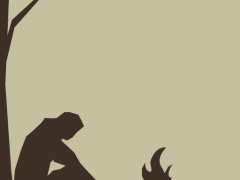mummy [ˈmʌmi] n. 木乃伊
Egyptian [iˈdʒipʃən] adj. 埃及的
temple [ˈtempəl] n. 庙
* * *
A: The bus to Jinge Temple has just left.
B: How long will the next bus arrive?
A:去金阁寺的车刚走。
B:坐下趟车要等多长时间?
* * *
mark [mɑːk] n. 斑点
plate [pleit] n. (照相)底片
【扩】negative 底片
* * *
A: I can't find the plate of this picture.
B: It's in the bag, which is under that book.
A:我找不到这张照片的底片了。
B:在那本书下面的袋子里。
* * *
disease [diˈziːz] n. 疾病
last [lɑːst] v. 持续
【派】lasting 持久的
【扩】last a long time 经久不衰 last out 坚持到底
* * *
A: How long will the match last?
B: It will last one and a half hours.
A:这场比赛会持续多久?
B:会持续一个半小时。
* * *
prove [pruːv] v. 显示出
* * *
A: How's the workmanship of your products?
B: I'll let my products prove themselves.
A:你们的产品做工如何?
B:我会让产品自己来说话。
* * *
resin [ˈrezin] n. 树脂
skin [skin] n. 皮,皮肤
* * *
A: I like the light green skirt.
B: But it doesn't look good with your skin tone.
A:我很喜欢那件淡绿色的裙子。
B:可是它和你的肤色不配。
* * *
section [ˈsekʃ(ə)n] n. 切片
figure [ˈfiɡə] n. (人的)体形;人像
normally [ˈnɔːməli] adv. 通常地
* * *
A: Normally we do not give any discounts, for the prices have already been greatly reduced.
B: OK. We will accept it.
A:通常我们是不打折扣的,因为价钱已经减得很低了。
B:好的,我们接受这个价格。
* * *
survive [səˈvaiv] v. 幸免于
* * *
A: You need to be tough to survive in the jungle.
B: You can say that again. It's the challenge to the maximum of man's life.
A:要在丛林中活下来就要有坚韧不拔的意志。
B:是啊,这是对人类极限的挑战。
noun [专属名词]<英>妈妈,妈咪;木乃伊,干尸;干瘪的人 - Be very good and very quiet and help your mummy.
adjective [原级]埃及的;埃及人的;埃及语的;古埃及的;古埃及人的;埃及古物的;古埃及语的;吉普赛人的 - The Egyptian Army remained an untested force.
noun [专属名词]埃及人;古代埃及语;科普特语;吉普赛人 - Its food hall and the Egyptian hall are very famous.
noun [专属名词]庙宇,寺院;太阳穴,鬓角;犹太教堂;教堂,礼拜堂(尤指法国新教教堂);<美>(寺庙举行的)宗教仪式;耶路撒冷古神殿,犹太古圣殿(the Temple);律师协会会所(the Temple);被视为圣灵的殿堂的物体(尤指人的身体);专供某种活动之用的场所;边撑,伸幅器 - our temples are the flat parts on each side of the front part of your head, near your forehead.
noun [具体名词](品质或情感的)标志,迹象;符号,记号;痕迹,污点;分数;重要关口,水平;印记,特征;(Mark)型号;(Mark)画押;目标,靶子;评价;马克(德国货币单位,合100芬尼);(比赛的)起点;<美,非正式>容易受骗的人,容易被利用的人;(航海)(用于标明测深绳深度的)测标;(电信)传号 - A mark is a written or printed symbol, for example a letter of the alphabet.
verb [vt. 及物动词]做记号,做标记;(给学生或功课)打分,评分;留下痕迹,使有污点;标明方位,标示;纪念,庆贺;标志(重要事件或时刻);(特征,特点)标志,表明区别;注意,留心 - If something marks a surface, or if the surface marks, the surface is damaged by marks or a mark.
noun [具体名词]盘子,碟子;一盘(食物);<美>一道主菜;<澳新>(客人为社交聚会带去的)一盘(助兴)菜;(教堂中放捐款的)奉献盘;平板,金属护板(片);(刻有名字等的)金属牌子;(车辆的)号码牌;镀金层,镀银层;(尤指银或金质的)餐具;盾片,鳞甲 - Does the plater perform advanced quality planning?
verb [vt. 及物动词]给…镀(金属);给…加上装甲;用鳞片覆盖;摆盘;(棒球)跑垒得分;(生物)制作显微片 - He wanted to plate copper with silver.
noun [专属名词]疾病,病害;弊病,恶习 - The disease has no known cure.
verb [vt. 及物动词]传染,使…有病 - The plant is not susceptible to disease.
adjective [原级]最后的;最近的,上一个的;最后剩下的;最不可能的;最末的;仅存的;最不重要的,最无关紧要的;最后遇见的 - Much has changed since my last visit.
verb [vi. 不及物动词]持续;持久;维持,够用;坚持,支撑下去 - The marriage had lasted for less than two years.
noun [抽象名词]残余,剩余(the last of);末尾;结束,最后时刻 - He finished off the last of the wine.
adverb [程度副词]最近,上次;最后 - I was always picked last for the football team at school.
pronoun [指示代词]最近发生的事情;最后的人或事物;最后的人;最后一次;最后的动作,最后的话;用于指最新获得的消息 - She was the last to go to bed.
last 直接加时间或加 for+时间 (常跟一个表示时间的名词或短语,没有被动语态)
- The meeting lasts (for) three hours.
- The war between the two countries lasted (for) over three years/until 1453. vi. 持续,延续
- last time 上次
- last week 上周
- last month 上个月
- last year 去年
verb [vt. 及物动词]证实,证明;证明是,结果是;显示(自己的)才干(或勇气)(prove oneself);<法律> 检验,认证(遗嘱);(用数学或科学原理)证明,验算;试(枪),查验;(面团)发酵 - We have been accused of exaggerating before, but unfortunately all our reports proved to be true.
prove + adj. ① vi. 显示,表明
- It proves difficult to do the job by herself.
prove +to be +adj. ② vt. 证明,证实(后面可跟从句、形容词、名词、不定式等)
- It proves to be difficult.
- I will prove it to you. 我将会证明给你看
- We’re been trying to sell our house, but it’s proved to be very difficult.
- You should first prove that you bought these goods here.
| prove v.证明;证实;结果是 | The DNA test will prove his innocence. DNA测试将证明他的清白。 The new policy proved to be a great success. 新政策结果证明是一个巨大的成功。 |
|---|---|
| proof n.证据;证明(名词) | Do you have any proof that you were at the scene? 你有什么证据证明你在现场吗? |
| proven 被证明的,已证实的 | This is a proven method for weight loss. 这是一种已被证实有效的减肥方法。 |
| proving 正在证明的 | The detective is in the process of proving the suspect's guilt. 侦探正在努力证明嫌疑人有罪。 |
| disprove 反驳;证明...是错的 | Scientists have been unable to disprove the theory. 科学家们一直无法推翻这个理论。 |
| reprove 责备,指责 | She would reprove him for his laziness. 她会因为他的懒惰而责备他。 |
| proofread 校对 | You should always proofread your essay for any spelling mistakes. 你应该经常校对你的文章,检查是否有任何拼写错误。 |
| proofreader 校对员 | A good proofreader has a sharp eye for detail. 一个好的校对员对细节有敏锐的洞察力。 |
| waterproof 防水的 | This watch is waterproof up to 50 meters. 这款手表防水深度可达50米。 |
| fireproof 防火的 | The building was constructed with fireproof materials. 这座建筑是用防火材料建造的。 |
noun [专属名词](天然)树脂;合成树脂,人造树脂 - The plastic resin is used in a wide range of products, including electrical wire insulation.
verb [vt. 及物动词]用树脂涂(或处理) - One resin they used we know only existed in Burma.
noun [具体名词]皮,皮肤;兽皮,皮毛;(水果或蔬菜的)外皮;香肠衣;(液体表面凝结的)薄皮,薄层;(建筑物、飞机等的)外壳;<非正式>卷烟纸;(软件、网站等的)界面,皮肤;<英,非正式>光头;(盛液体的)皮囊;雪橇外皮,防滑底层(用海豹皮或其他材料做成,系于雪橇下侧以防攀登时向后滑动);<非正式>(尤作爵士乐用语)鼓,鼓面 - His skin is clear and smooth.
verb [vt. 及物动词]剥皮,削皮;擦破(身体某部位);(伤口)长出新皮;<古>皮肤愈合;<非正式>(选手)轻松过球;<非正式>彻底击败,轻易击败(对手);<非正式>骗取(某人的)钱财;<英,非正式>制作大麻香烟(skin up) - ...with the expertise of a chef skinning a rabbit. …
noun [抽象名词]段,部分;散件,部件;(书、报等的)节,栏;一部分人;(乐队的)组;断面图,剖面图;(数学中的)截面;(手术中的)开刀,切开;(供研究用的动物或植物的)切片;<美> 一平方英里的土地;<美>(柑橘类水果的)一瓣;(法律文件的)款,项;路段;区域;部门,科;<新西兰> 建房用地;(军队的)特定单位;分排,小队;(生物)组(尤指亚属) - That section of the road is still closed.
verb [vt. 及物动词]<英> 把…关进精神病院;(手术中)把…切开;将…制成切片;切开,切断;被切割成片,被分成部分 - It holds vegetables in place while they are being peeled or sectioned.
noun [具体名词]数字,数目,数值;数字符号,位数;身材,体型;(远处的)人影;(重要的)人物;(绘画或模型中)人像;(书中的)图、表;(数学)图形;价格,金额 - It would be very nice if we had a true figure of how many people in this country haven't got a job.
verb [vt. 及物动词](以重要地位)出现;<美,非正式>认为,估计;理解,弄懂;计算;用图画(或图形等)描绘,想象 - She figured that both she and Ned had learned a lot from the experience.
adverb [频率副词]通常,平常;正常地;正交地 - All airports in the country are working normally today.
verb [vt. 及物动词](经历事故、战争或疾病后)活下来,幸存;比…活得久,比…长寿;挺过,艰难度过;幸免于难,留存;(靠很少的钱)继续维持生活;设法对付(困难或令人不愉快的事) - Most women will survive their spouses.













